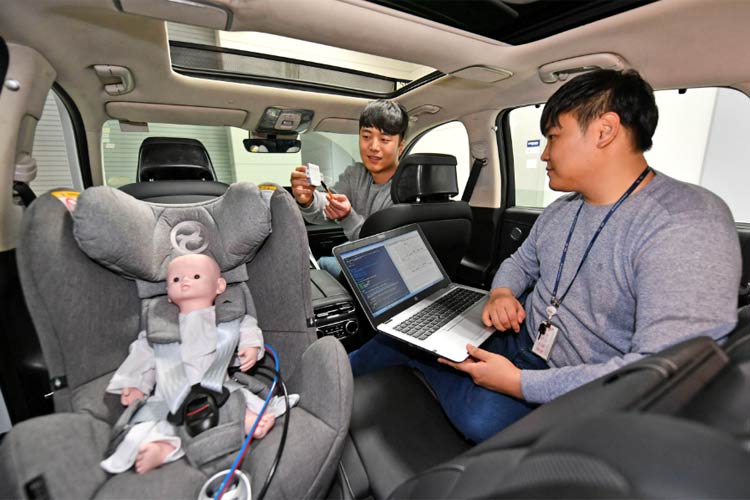
Hyundai Mobis has developed an ‘in-cabin safety alert system’ for accurately sensing the children in the rear seats. Using radar sensors, the system helps in preventing babies from dying from vehicular heatstroke and safety accidents. The in-cabin sensor technology is an infrastructure technology that is capable of improving the detection accuracy and provides passenger safety and convenience in the high-level autonomous driving mode.
The radar-based rear occupant alert (ROA) system sends an alert to the driver through the instrument panel or smartphone if a passenger remains in the back seat. The system operates normally even with high-voltage lines or rail-roads nearby and is capable of distinguishing between adults, infants, and pets accurately. Camera sensors do not recognize infants covered with blankets, but radars can measure minute movements of the chest and blood flow of passengers by passing through their clothes.
If the in-cabin technology matures further in the fully autonomous driving mode, the vehicle may serve as an ambulance that transports the passenger to the hospital emergency room. There are plans to further secure sensor fusion technologies, which combine radars and cameras, one after another. Hyundai Mobis is planning to develop radar capable of measuring the heartbeats of passengers and expand the biometric function this year.

